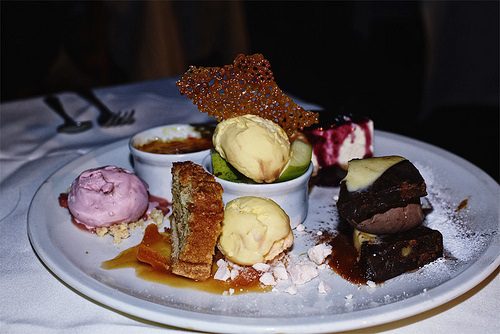From the Archives: Stay in top form by avoiding the temptation of holiday overindulgence
Coupled with poor weather and a lack of training motivation, the tendency to indulge over the holidays can easily set cyclists up to go overboard.

(This article was originally published in our Dec. 2011/Jan. 2012 issue)
Coupled with poor weather and a lack of training motivation, the tendency to indulge over the holidays can easily set cyclists up to go overboard. While December might be the perfect time to ease off riding as part of a periodized training plan, smart cyclists will have a plan for the often-temping month.
Cliff Worden-Rogers, coach and owner of Transition Point Training in London, Ontario said cyclists’ biggest off-season mistake is not having such a plan. “Typically, the first week, [athletes] overindulge, the second they relax, and by the third they begin to feel a little bit lazy. By the fourth week, they’re antsy to be doing something.” By planning the day they’ll start their training, he said, cyclists give themselves accountability and can avoid what he calls the laziness factor – a tendency to sleep in and skip any kind of training routine.
“I usually sit down with my athletes and plan out when they’re going to start their training for next season, which will determine how serious they are with their training over the holidays,” said Chris Helwig, an endurance coach also based out of London. For elite racers without many family commitments or for those heading to a training camp shortly after the holidays, December might be a more serious month. For others, the more serious off-season training won’t start until after the New Year.
Worden-Rogers said a break from the sport is essential for both mental and physical reasons. The offseason should be about doing what an athlete wants to do. “If you want to ride your bike every day and you enjoy it, do it. If it your body tells you to stop, then take a break,” he said. “Never feel guilty about the off-season.”
Regardless of whether it brings structured training or not, the month of December can be a tempting one, filled with holiday parties and events offering plenty of treats and ample opportunities to drink and be merry. To stay healthy, both coaches offer strategies. Worden-Rogers said athletes should think of treats as a reward. “Eat one or two and just really enjoy the taste. Try not to inhale them, though endurance athletes like to destroy food so this is hard to change.”
Helwig recommends moderation. “If you’re going to six or seven different holiday events, try to only really let loose on Christmas day and the rest of the time, do everything in moderation,” he said, also noting that alcohol should also be part of this moderation approach. Athletes need to find a balance. “The old 90-10 rule is good. Eat healthy 90 per cent of the time and 10 per cent of the time you have cheat meals. You’ve got to balance things with real life – family dinners, that kind of stuff,” he said. “It’s a good idea to still weigh yourself over the holidays, at least once a week, so that you’re at least cognizant of where you’re at,” he said. He also recommends that if an athlete has the time to train over the holidays – be it riding, running, or lifting weights – they should.
Though New Years Day might bring feelings of guilt and panic for those who feel they’ve overindulged, Helwig said the reality is usually not too bad. “Most athletes are pretty good. They might gain four or five pounds, but that’s nothing to get stressed about. Usually the fluctuations are fairly small in the off-season,” he said. Helwig advises athletes to take a smart approach and to come back into training gradually, avoiding anything drastic and taking their time to lose any weight they may have gained. “You can get really fit and lose quite a bit of weight in three months. Train intelligently and don’t panic.”
